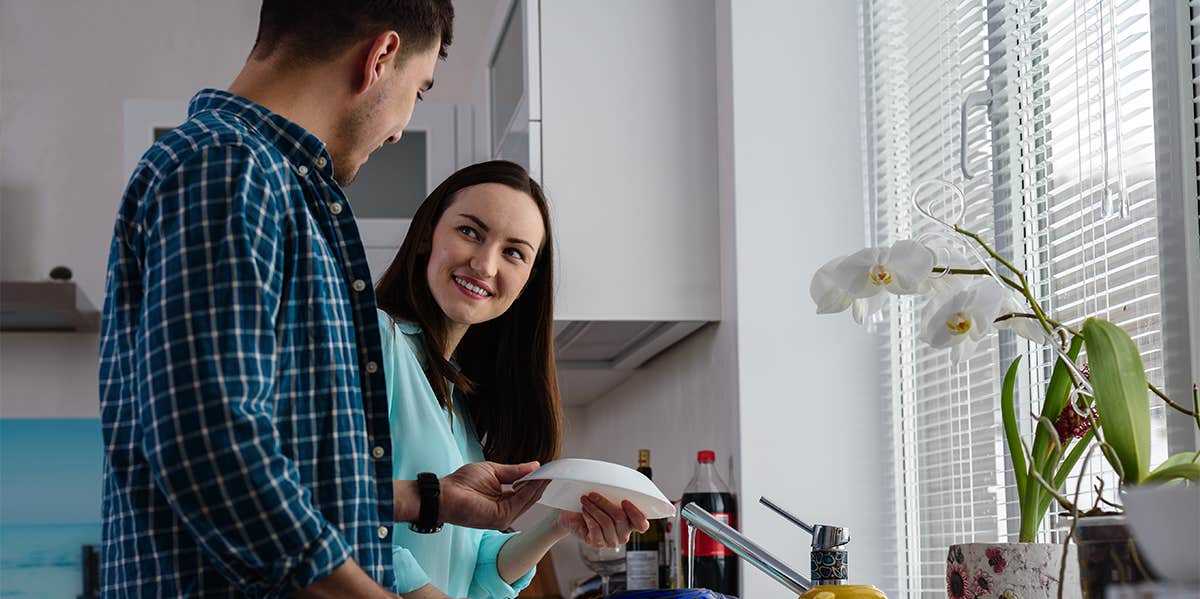Why Couples Who Don't Split The Chores Are More Likely To Break Up
Do your fair share.
 Ruslan Galiullin / Shutterstock
Ruslan Galiullin / Shutterstock Love is compromising, right? This is a cliché phrase, but it's easily forgotten and is considered a gray area for those in relationships.
Would you say you know how to compromise in relationships? Men, what do you think of when you hear the word "compromise"? Is it when you’re not seeing eye to eye with your partner, and you give up just to avoid further confrontation? Is it when you alternate holidays to spend with each of your families?
The answer is that, and more. But it may come down to something even more specific: housework. Because according to a 2012 Swedish study, household chores play a big role when it comes to equality within a relationship.
The study took place from 1981-2007 and consisted of asking 723 residents about education, home life, health, and work. Researchers found that when the chores weren't divided evenly, it was the women who typically suffered more, due to women feeling like they aren’t considered equals by their partners.
Surprisingly, these same people (both men and women), at age 21, felt equally distressed, which was displayed through restlessness and anxiety. However, by age 42, women’s distress rose while men’s distress stayed the same.
But this wasn't just the case for chores. The women who were under more severe stress felt like — even if they carried a heavier load of household chores — the relationship as a whole was an uneven playing field. Needless to say, this causes problems within any relationship.
It’s important to note that outside forces most likely influenced this dissatisfaction among women. Let’s not forget that back in the 1950s, traditional gender roles were more widely accepted. As ridiculous as that expectation is, we didn’t go from that to where we are now overnight.
Over the years, women have used their voices and strength to speak up and level the playing field — and have done so successfully. However, as great as this progress is, it’s been a slow process. This is why not nearly 100 percent of women have an issue with gender inequality.
With all of these women's empowerment movements, it’s no surprise that if a woman senses gender inequality in her life, let alone her own relationship, it’s going to be a problem. Why would the average woman be expected to just suck it up when she looks around at other women who are free to hold positions and do things that only men were once allowed to?
RELATED: 10 Compromises You Should Never Make In Your Relationship — No Matter What
Perhaps one of the more interesting findings is that, throughout the shift from both men and women being satisfied with the equality within their relationship to women being dissatisfied, more men than women perceived the relationship as gender-equal.
This is interesting because it hints at a deeper problem beyond the surface: men are so used to things being unequal that they don’t bat an eye when the inequality directly affects those who get the short end of the stick.
So, men, pick up that broom and pan, and get to work!
Eric Webb is a writer who specializes in love, relationship, and lifestyle topics.

